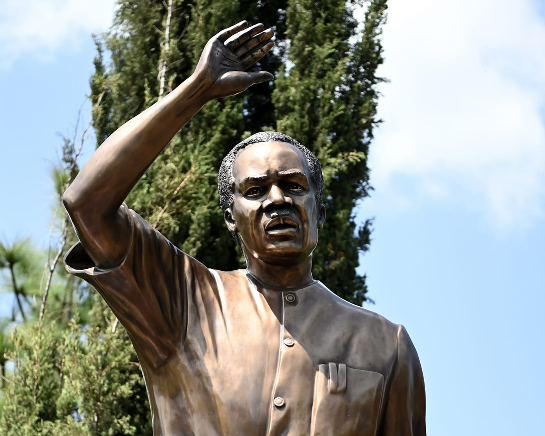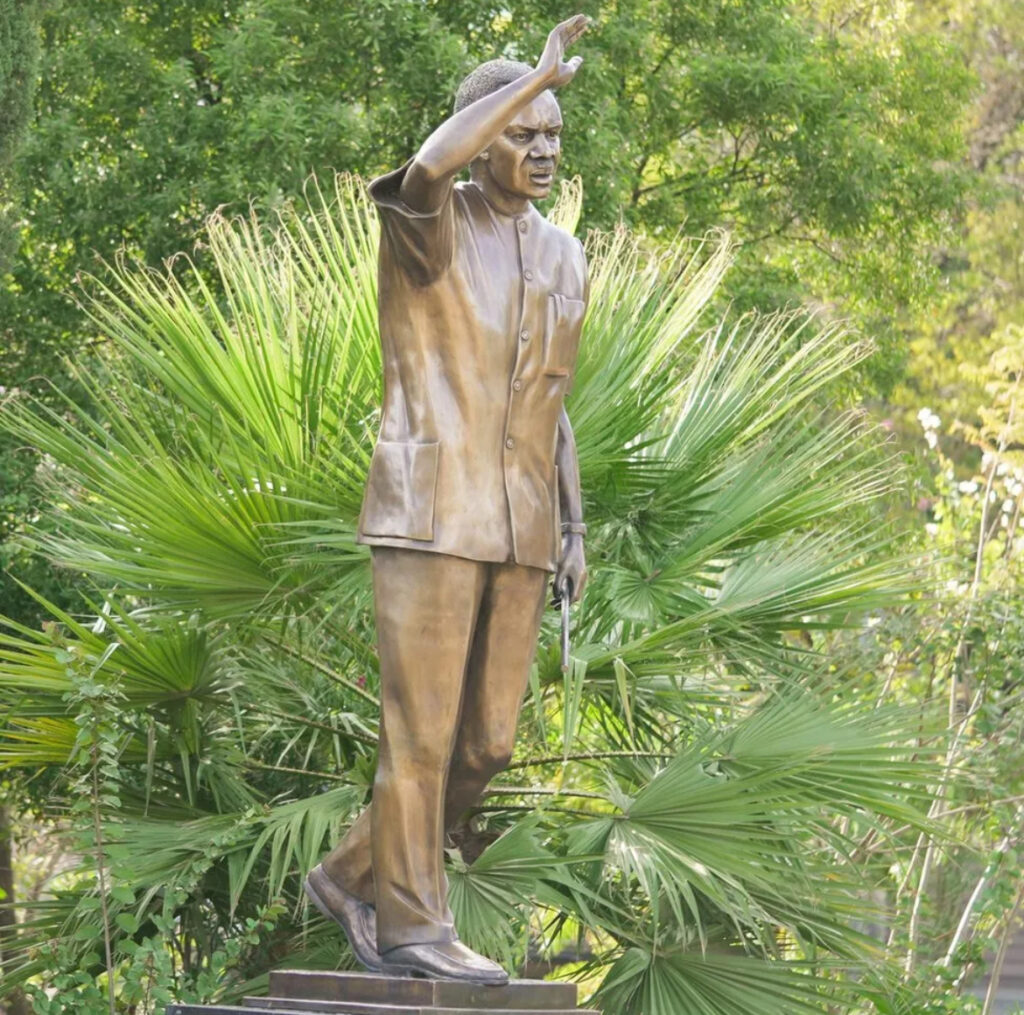
Faith Nyasuguta
Tanzania’s founding father, Julius Nyerere, has received posthumous honors with a statue erected outside the African Union headquarters in Addis Ababa.
Leading Tanzania from 1961 to 1985, Nyerere, known as Mwalimu (teacher), was a dedicated pan-Africanist. At the unveiling, AU Commission leader Moussa Faki Mahamat praised Nyerere’s legacy, describing it as an embodiment of Pan Africanism, profound wisdom, and service to Africa.
Nyerere’s leadership extended to his role in creating the Organisation of African Unity, later the African Union.
Nyerere’s impact on Tanzania was significant. Initially becoming prime minister of Tanganyika in 1961, he successfully united a diverse nation composed of over 120 ethnic groups.

Encouraging the use of Swahili as a common language, he envisioned “African Socialism” or ujamaa, emphasizing collective ownership. In 1964, Tanganyika merged with the Zanzibar archipelago to form Tanzania, eventually becoming a one-party state. Nyerere defended this system, arguing it provided more freedom than British rule and ensured stability.
Despite the economic challenges during his tenure, Nyerere focused on creating an egalitarian society through cooperative agriculture.
While his vision for self-reliance struggled, he achieved substantial improvements in healthcare and literacy. Nyerere’s influence is evident in Tanzania, where various landmarks bear his name, including the main international airport.
Internationally, Nyerere played a vital role in advocating against white-minority rule in Rhodesia (now Zimbabwe) and South Africa during the 1970s.
He supported armed groups opposing these regimes. President Samia Suluhu Hassan acknowledged Nyerere’s prioritization of Africa’s wellbeing over personal fortune or popular approval.
Despite tensions, Nyerere opposed the expulsion of Asians in Uganda by Idi Amin in 1972. Relations soured, leading to Tanzanian intervention to oust Amin in 1979. The unveiling of Nyerere’s statue was hailed by Zambia’s President Hakainde Hichilema as a “proud day” for the continent.
Julius Nyerere, a trained teacher, was the first person from Tanganyika to study at a British university in 1949. He passed away in 1999 at the age of 77, and his legacy endures, with October 14 designated as a public holiday in his honor.
The statue joins those of other African leaders like Kwame Nkrumah and Haile Selassie at the AU headquarters, symbolizing their contributions to African nationalism and unity.
RELATED:




